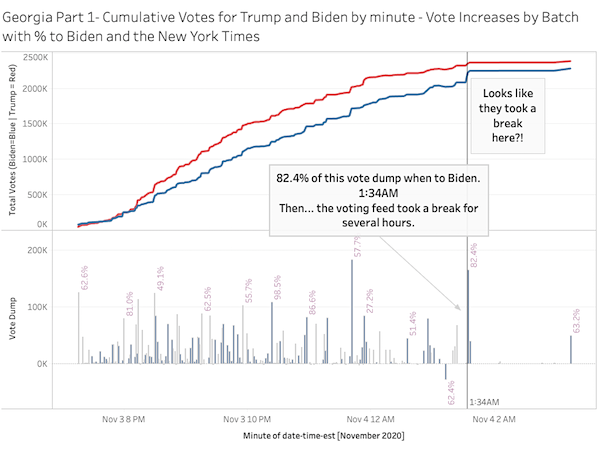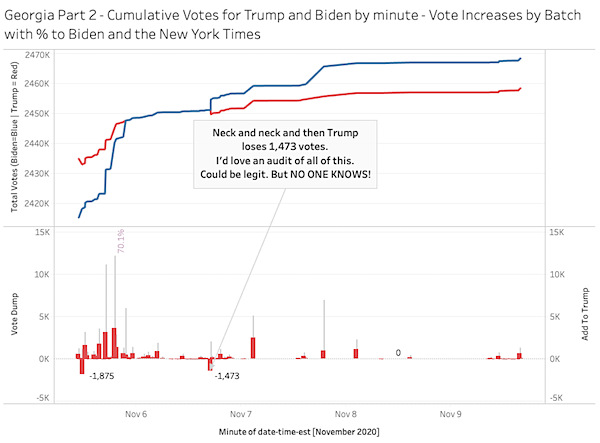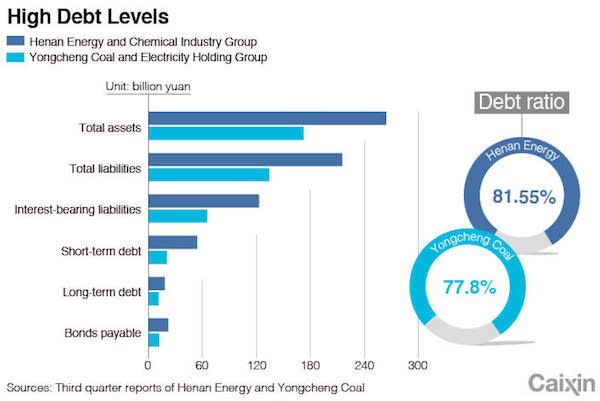
Claude Monet Impression Sunrise 1872





“How could some be making billions off the horror that’s killing millions?”
• What Could be Better Than a Drug That Can Stop Covid? (CP)
Who doesn’t like a race? A grand global race, like the competition to run the first mile under four minutes. Or the race to scale the world’s highest mountain. Or be the first to walk on the moon. Now we find ourselves in a race of much greater import: the dash to develop an effective vaccine for Covid-19. The world now watches with that fabled bated breath. Pfizer, a Big Pharma behemoth, is running neck-in-neck with Moderna, a lavishly funded corporate upstart. Pfizer, first to announce trial results, reports 90 percent effectiveness rates for its pandemic-stopper. Moderna, not to be outdone, reports 95 percent success rates. We actually hit that brass ring, too, retorts Pfizer. And ours even works with older people! What a race! How exciting! More to the point: How lucrative!
This race is minting billionaires. The founder of Pfizer’s partner company, BioNTech, achieved billionaire status earlier this year. Earlier this month, that founder and his two top investors saw their personal fortunes leap a combined $2 billion. At Moderna, three top players, including the CEO Stéphane Bancel, have become billionaires so far this year. Various other pharmaceutical industry movers and shakers — like the hedge fund behind Vaxart, a San Francisco concern — have made hundreds of millions. “Every day, Americans wake up and make sacrifices during this pandemic,” says Ben Wakana, the executive director at Patients for Affordable Drugs. “Drug companies see this as a payday.” The headlines that trumpet coronavirus boondoggles have become, in effect, the rain on our yes-we-now-have-a-vaccine! parade.
How could some be making billions off the horror that’s killing millions? The biggest tragedy of all: Things don’t have to be this way. Over a half-century ago, we conquered polio, and no one became fabulously rich in the process. We could have done the same with Covid-19.


Was the AstraZeneca stock price under presssure yesterday because investors figured this out?
• Successful Not-for-Profit Oxford Vaccine Threatens Big Pharma Profit (MPN)
The world is abuzz today after a team of medical researchers from Oxford University in the United Kingdom announced that advanced trials of their experimental coronavirus vaccine were a roaring success, with the vaccine possibly being rolled out before Christmas. Testing was done on 24,000 volunteers in the U.K, Brazil, and South Africa, with an average effectiveness of over 70%. However, when the vaccine was administered as a half dose, then patients were later given a full one, effectiveness increased to 90%. Encouragingly, there were no serious side effects registered among any of the volunteers, none of whom had to go to the hospital as a result of being immunized. The U.K. government has already ordered 100 million doses.
Professor Andrew Pollard, Director of the Oxford Vaccine Group and chief investigator of the experiment, was delighted, stating that: “These findings show that we have an effective vaccine that will save many lives. Excitingly, we’ve found that one of our dosing regimens may be around 90 percent effective, and if this dosing regimen is used, more people could be vaccinated with planned vaccine supply. Today’s announcement is only possible thanks to the many volunteers in our trial, and the hard working and talented team of researchers based around the world.”
Even better news is that the Oxford team developed the breakthrough vaccine with the explicit intention of supplying it around the world on a not-for-profit basis, meaning that the poorest nations on the planet will not have to worry about being shut out of a cure due to lack of funds. This was certainly not the case with other solutions developed by the likes of Moderna or Pfizer. Indeed, the world’s richest countries had already bought up the majority of their COVID-19 vaccines, whose secrets were being closely guarded, rather than shared widely to help the rest of humanity.
Large scale manufacturing of the vaccine has already begun in ten countries, according to a press release from the University of Oxford. “Today marks an important milestone in our fight against the pandemic. This vaccine’s efficacy and safety confirm that it will be highly effective against COVID-19 and will have an immediate impact on this public health emergency,” said Pascal Soriot of AstraZeneca, a bioresearch company that partnered with the 924-year-old educational institution on development and testing. “Furthermore, the vaccine’s simple supply chain and our no-profit pledge and commitment to broad, equitable and timely access means it will be affordable and globally available supplying hundreds of millions of doses on approval.”

“Scientists said they still could not fully explain why the half dose gave better protection, but said it may be that it triggers the immune system differently.”
• Oxford Covid Vaccine Hit 90% Success Rate Thanks To Dosing Error (G.)
The Oxford University and AstraZeneca vaccine trials reached 90% efficacy by accident thanks to the “serendipity” of an error that led to some participants receiving half doses, it has emerged. On Monday scientists revealed that the Oxford vaccine had an overall efficacy of 70%, but could be around 90% effective when administered as a half dose followed by a full dose a month later. “The reason we had the half dose is serendipity,” said Mene Pangalos, executive vice-president of biopharmaceuticals research and development at AstraZeneca. When university researchers were distributing the vaccine at the end of April, around the start of Oxford and AstraZeneca’s partnership, they noticed expected side effects such as fatigue, headaches or arm aches were milder than expected.
“So we went back and checked … and we found out that they had underpredicted the dose of the vaccine by half,” said Pangalos. Instead of restarting the trial, he said researchers decided to continue with the half dose and administer the full dose booster shot at the scheduled time. About 3,000 people were given the half dose and then a full dose four weeks later, with data showing 90% were protected. In the larger group, who were given two full doses also four weeks apart, efficacy was 62%. Scientists said they still could not fully explain why the half dose gave better protection, but said it may be that it triggers the immune system differently.
Prof Sarah Gilbert from Oxford University, who led the research, said: “It could be that by giving a small amount of the vaccine to start with and following up with a big amount, that’s a better way of kicking the immune system into action and giving us the strongest immune response and the most effective immune response.”

How wrong was this analyst?
• Analyst Warns AstraZeneca Vaccine Efficacy “Embellished” (ZH)
AstraZeneca’s announcement that its adenovirus-vector vaccine is roughly 70% effective (which followed an announcement claiming the vaccine is safe and effective in the elderly) failed to impress investors, as Astrazeneca shares tumbled on the news in premarket. But AZ shares took a second leg lower on Monday when a health-care analyst dropped some damning commentary that has caught the market’s attention. SVB Leerink analyst George Porges said Monday that the company is likely to be roundly criticized for publishing its results without enough data on safety and other factors. The vaccine’s (known formally as ChAdOx1) safety disclosure simply stated that “no serious safety events related to the vaccine have been confirmed”, as well as for its results, which the company “tried to embellish” by highlighting a reported 90% efficacy in the relatively small sub-set of subjects in the study who received the modified initial vaccination followed by the “full dose” four weeks later.
Porges believes that this product will never be licensed in the US due to the design of the company’s trials, which don’t appear to match the FDA’s minimum criteria, and the occurrence of severe safety events that resulted in the extended clinical hold on enrollment in the US (remember when the US put the AZ-Oxford trial recruitment on hold for a month). The findings, according to Porges, confound his original thesis that “all spike protein vaccines are created equal”, which is manifestly not the case now. This raises questions about other adenovirus-vector vaccines, including the Johnson & Johnson’s vaccine.
On the other hand, Porges said “we remain optimistic about the outlook for adjuvanted protein sub unit vaccines such as those in development at Novavax and GSK/SNY, and these engineered synthetic virus vaccines may have a role long term in boosting, but it appears that the occurrence of pre-existing or post-vaccination immunity to the vector has a significant dampening effect on the efficacy of the vaccines (and may confer risk as well) and for this reason we believe these products are likely to be regarded as relatively marginal suppliers in the COVID vaccine market of the future.”

“Murphy also said that she had received “threats online, by phone, and by mail directed at my safety, my family, my staff, and even my pets..”
• Trump Tells GSA To Allow Biden Transition To Proceed (ZH)
In what is the closest words yet to a concession, President Trump agreed to let GSA proceed with the Biden administration transition. In a pair of tweets, Trump noted: “I want to thank Emily Murphy at GSA for her steadfast dedication and loyalty to our Country. She has been harassed, threatened, and abused – and I do not want to see this happen to her, her family, or employees of GSA.” Trump added that while the election litigation battle continues… “Our case STRONGLY continues, we will keep up the good fight, and I believe we will prevail!” … He will allow the transition to proceed: “Nevertheless, in the best interest of our Country, I am recommending that Emily and her team do what needs to be done with regard to initial protocols, and have told my team to do the same.”
[..] Trump’s tweets follow a letter from Emily Murphy (see below), the General Services Administration chief, in which she told Biden that “because of recent developments involving legal challenges and certifications of election results, I have determined that you may access the post-election resources and services described in Section 3 of the Act upon request,” which includes some $6.3 million in funding and other government resources, as well as access to current agency officials and briefing books. The biggest change now is that the Biden transition team will be able to flood federal agencies with officials focused on preparing the way for his administration. They will have access to agency staff and briefing books assembled earlier this year.
Until today’s GSA letter, the Biden transition team had worked informally to establish a new administration, including assembling a coronavirus task force and consulting with public health officials outside of the federal government, mimicking the approach former Vice President Dick Cheney took during the disputed 2000 election. In the letter, Murphy also said that she had received “threats online, by phone, and by mail directed at my safety, my family, my staff, and even my pets in an effort to coerce me into making this determination prematurely.” She added that she was not “directly or indirectly pressured by any Executive Branch official” into the making or timing of a decision on the presidential transition.

“This country, for what it is, takes itself too seriously. Have you ever considered the possibility that America has always been a joke? I’m sure most historians have.”
• President-Elect Biden Is A Machiavellian’s Dream (GM)
Though I did not put this in writing, not from responsibility but just out of cowardice, I did go around telling people IRL that my preferred outcome was “it looks like Trump wins, then it looks like Biden steals it from him.” Some mistook this for an “accelerationist” stance. It was only Machiavellian. I would also tell Trumpists that I was “so pro-Trump, I wrap all the way around to pro-Biden.” This did not raise many hackles and was also quite true. In any case I am delighted to hail, perhaps prematurely but I doubt it, the election of this elder statesman, this American Nestor, always a bridesmaid and now a bride, “China” Joe Biden. If the big guy ever needs to pull an Augustus, he knows who to call. (President-elect Biden has in fact kissed my own mother, not in a sexual way I think. My stepfather, a former Biden staffer from the ‘80s, is a gentleman of honor. So I hear only good things about America’s new cynosure. His teeth sure are looking great.)
It is useless to speculate on the details of a Philadelphia election. One need only say the words, “Philadelphia election,” and anyone on or near the grave of Mark Twain will experience a little earthquake. Has Philadelphia ever had a free and fair election? (This country, for what it is, takes itself too seriously. Have you ever considered the possibility that America has always been a joke? I’m sure most historians have.) The fundamental purpose of a democratic election is to test the strength of the sides in a civil conflict, without anyone actually getting hurt. The majority wins because the strongest side would win. Better to measure that by counting heads, than knocking heads; and counting heads produces a reasonable guess as to who would win a head-knocking contest. Same outcome, fewer concussions: a Pareto optimization.
But this guess is much better if it actually measures humans who are both willing and able to walk down the street and show up. Anyone who cannot show up at the booth is unlikely to show up for the civil war. This is one of many reasons that an in-person election is a more accurate election. (If voters could be qualified by physique, it would be even more accurate.) My sense is that in many urban communities, voting by proxy in some sense is the norm. The people whose names are on the ballots really exist; and almost all of them actually did support China Joe. Or at least, preferred him. The extent to which they perform any tangible political action, including physically going to the booth, is very low; so is their engagement with the political system. They do not watch much CNN.

”..these protesters were all “Corona Deniers,” “far-right extremists,” “conspiracy theorists,” “anti-vaxxers,” “neo-Nazis,” and so on, so they probably got what they deserved.”
• The Germans Are Back! (CJ Hopkins)
Break out the Wagner, folks…the Germans are back! No, not the warm, fuzzy, pussified, peace-loving, post-war Germans … the Germans! You know the ones I mean. The “I didn’t know where the trains were going” Germans. The “I was just following orders” Germans. The other Germans. Yeah…those Germans. In case you missed it, on November 18, the German parliament passed a law, the so-called “Infection Protection Act” (“Das Infektionsschutzgesetz” in German) formally granting the government the authority to issue whatever edicts it wants under the guise of protecting the public health.
The government has been doing this anyway — ordering lockdowns, curfews, travel bans, banning demonstrations, raiding homes and businesses, ordering everyone to wear medical masks, harassing and arresting dissidents, etc. — but now it has been “legitimized” by the Bundestag, enshrined into law, and presumably stamped with one of those intricate official stamps that German bureaucrats like to stamp things with. Now, this “Infection Protection Act,” which was rushed through the parliament, is not in any way comparable to the “Enabling Act of 1933,” which formally granted the government the authority to issue whatever edicts it wanted under the guise of remedying the distress of the people.
Yes, I realize that sounds quite similar, but, according to the government and the German media, there is absolutely no equivalence whatsoever, and anyone who suggests there is is “a far-right AfD extremist,” “a neo-Nazi conspiracy theorist,” or “an anti-vax esotericist,” or whatever. As the Protection Act was being legitimized (i.e., the current one, not the one in 1933), tens of thousands of anti-totalitarian protesters gathered in the streets, many of them carrying copies of the Grundgesetz (i.e., the constitution of the Federal Republic of Germany), which the parliament had just abrogated. They were met by thousands of riot police, who declared the demonstration “illegal” (because many of the protesters were not wearing masks), beat up and arrested hundreds of them, and then hosed down the rest with water cannons.
The German media — which are totally objective, and not at all like Goebbels’ Ministry of Propaganda in the Nazi era — dutifully reminded the German public that these protesters were all “Corona Deniers,” “far-right extremists,” “conspiracy theorists,” “anti-vaxxers,” “neo-Nazis,” and so on, so they probably got what they deserved.

“We’ll dare to have seven at the table here, and therefore not have to eat some reincarnation of turkey for three weeks afterward.”
• Home Alone Thanksgiving (Jim Kunstler)
One result of these final innings in the contest will be the delegitimizing of Ol’ White Joe Biden as president, should his forces finally prevail. Half of America will not only refuse to buy it, but it will incite a counter-resistance on the right as determined as Hillary’s pussyhat brigades and bureaucrat activists of the post-2016 era, and possibly more bloodthirsty, especially if the left makes a move to confiscate guns. The prospect of Joe Biden functioning as president is a joke, anyway. Have you forgotten his non-campaign campaign? The empty parking lots with the white circles? The pitiful gaffes? And lurking in this fog of war is the all that odious monkey business selling influence abroad involving crack-head son Hunter and the rest of the Biden family. Think that’s going away?
What you’d actually get with a Biden “victory” is a Deep State junta of malicious, coercive, and vengeance-crazed characters such as John Brennan, Andrew Weissmann, Nancy Pelosi, Susan Rice, and Adam Schiff, with Barack Obama hovering somewhere backstage, commanding this-and-that — even if President Ole White Joe is shoved aside on account of mental incompetence, leaving Kamala Harris in the Oval Office to giggle through the next four years while she orchestrates junior-high-school style mean girl campaigns against the enemies of Wokesterism. The DC “blob” has demonstrated that it doesn’t need no steenkin’ president to work its wicked will.
Meanwhile, have a lovely Home Alone Thanksgiving, if you are dutifully following the orders of Governors Cuomo, Pritzker, Whitmer, Murphy, and Newsom. We’ll dare to have seven at the table here, and therefore not have to eat some reincarnation of turkey for three weeks afterward. As a holiday bonus, I leave you with a little burlesque submitted by a reader wishing to remain anonymous for your amusement, as follows….


Wonder why Xi is allowing it.
• Bond Defaults Show Bailouts Over For China’s State-Owned Enterprises (Caixin)
“This might be a historic credit crisis,” a debt investor told Caixin, referring to a recent series of bond defaults by state-owned enterprises (SOEs). The bond market veteran’s employer holds AAA-rated bonds of two state-owned defaulters in the crisis: Brilliance Auto Group Holdings Co., a Shenyang-based automaker with links to BMW AG, and Yongcheng Coal and Electricity Holding Group Co. Ltd., a major coal mining company in Henan province. He has been trudging between Shenyang in the northeast and Zhengzhou in central China trying to collect the debts. Both bond issuers are profit-making companies backed by local governments, so their defaults caught investors off guard and set off a chain reaction affecting other debt issuers and local government financing vehicles.
Such bondholders counted on government bailouts to reduce the risk of default by SOEs. But amid a national policy change to shift risk to markets, local governments have been unresponsive. They are now coming under criticism for allowing SOEs to default and avoiding their own responsibility for debt taken on by government-backed businesses. “Default by SOEs is not a terrible thing,” one bond market participant said. “What we fear is that the government allows SOEs to evade repayment of debts in the name of marketized default.” Now the biggest challenge for the government is how to push forward the marketization restructuring of SOEs while avoiding local credit collapses that could spark a domino effect and weigh on the economic recovery.
Since China launched a massive deleveraging campaign in 2015 to curb excessive borrowing by local governments, financial institutions and businesses, private companies’ credit risks have been relatively fully exposed. That means even a large wave of defaults by private companies wouldn’t disturb the market. But the risks related to borrowing by SOEs have been largely an iceberg under the water, a senior bond market participant said. “Once the SOEs default their debt, it would turn the market upside down,” he said. The sell-off of corporate bonds triggered by the defaults of Brilliance Auto and Yongcheng has caused 60 billion yuan ($9.15 billion) of losses for bond investors, according to one brokerage estimate.
Many energy companies canceled or delayed bond issuance plans over the past two weeks. A coal mining enterprise in Shanxi had to pay a 5% coupon rate for an ultra-short-term bond issued Nov. 18, 1.1 percentage points higher than an earlier bond from the same issuer. As the default rate for Chinese private companies rose sharply to 5.34% in 2018 from 1.83% in 2017, defaults by SOEs amounted to only 0.02%, according to a calculation by Huatai Securities.”The deleveraging is like a storm that has drenched everyone,” one fund manager said. “How can only private firms get wet while SOEs get away with it?”


New riches.
• OED Says 2020 Has Too Many Potential Words Of The Year (G.)
For the first time, the Oxford English Dictionary has chosen not to name a word of the year, describing 2020 as “a year which cannot be neatly accommodated in one single word”. Instead, from “unmute” to “mail-in”, and from “coronavirus” to “lockdown”, the eminent reference work has announced its “words of an ‘unprecedented’ year”. On Monday, the dictionary said that there were too many words to sum up the events of 2020. Tracking its vast corpus of more than 11bn words found in web-based news, blogs and other text sources, its lexicographers revealed what the dictionary described as “seismic shifts in language data and precipitous frequency rises in new coinage” over the past 12 months.
Coronavirus, one of its words of the year, is a term that dates back to the 1960s, although it was previously mainly used by scientists. By March this year it was one of the most frequently used nouns in the English language. “Covid-19”, first recorded on 11 February in a report by the World Health Organization, quickly overtook coronavirus in frequency of use, noted the dictionary. One of the year’s most remarkable linguistic developments, according to the OED, has been the extent to which scientific terms have entered general discourse, as we have all become armchair epidemiologists, with most of us now familiar with the term “R number”. “Before 2020 this was a term known mainly to epidemiologists; now non-experts routinely talk about ‘getting the R down’ or ‘bringing R below 1’.
Other terms that have become much more common in everyday discourse this year include ‘flatten the curve’ and ‘community transmission’,” said the dictionary. Use of the phrase “following the science”, it added, has increased in frequency more than 1,000% compared with 2019. Other coronavirus-related language cited by the OED includes “pandemic”, which has seen usage increase by more than 57,000% this year, as well as “circuit breaker”, “lockdown”, “shelter-in-place”, “bubbles”, “face masks” and “key workers”. The revolution in working habits has also affected language, with both “remote” and “remotely” seeing more than 300% growth in use since March. “On mute” and “unmute” have seen 500% rises since March, while the portmanteaus “workation” and “staycation” increased by 500% and 380% respectively.
Other news events have also been reflected in language. In the early months of 2020, there were peaks in usage of “impeachment” and “acquittal”, and “mail-in” has seen an increase of 3,000%. Use of “Black Lives Matter” and “BLM” also surged, as did the term “QAnon”, up by 5,716% on last year. The phrase “conspiracy theory”, meanwhile, has almost doubled in usage between October 2019 and October 2020. Use of “Brexit”, however, has dropped by 80% this year.

The impact on society, communities will be huge. A Great Reset.
• Work From Home Until April If Possible, PM Tells England’s Workers (G.)
The government has told all workers in England they should work from home if possible until April 2021 as part of a move to a stricter tier system that is likely to be a further blow to businesses reliant on commuters in city centres. Boris Johnson on Monday confirmed that under every tier of new restrictions, workers in England who can work from home should continue to do so. The rules under the new three-tier system will last until at least the end of March if voted through by parliament. The government’s 64-page Covid-19 winter plan suggested that working from home was one of the three key areas highlighted by the Scientific Advisory Group for Emergencies (Sage). The other policies apparently suggested by Sage included closing pubs that do not serve food in tier 2 areas and closing all hospitality venues in tier 3 areas.
The guidance said: “The previous tiered system had an impact on viral transmission, but Sage advised that stronger measures would be needed in some areas to prevent the epidemic from growing. The tiers therefore need to be strengthened to keep the virus under control.” England’s larger cities, such as Birmingham, Leeds, London and Manchester, and Scottish cities such as Glasgow have lagged behind their smaller counterparts in recovering from lockdowns because of their reliance on workers, according to the Centre for Cities, thinktank. Smaller cities are more reliant on leisure footfall, a disadvantage in normal times that has been flipped on its head by the pandemic. Paul Swinney, director of policy and research at the thinktank, said: “The prospect of them having to hang on to April may mean when city centre workers go back, their favourite restaurant or coffee bar may not be there.”
Central London has been particularly hard hit because of the vast number of people who previously commuted into it from other parts of the city or beyond. Sadiq Khan, the mayor of London, told the Observer on Sunday that there was “potentially an existential threat to central London as we know it” because of the curbs on office workers. The City of London Corporation, the governing body of the Square Mile, which also advocates for the financial services sector, said UK ministers needed to provide a plan for a return to offices before a vaccine. “What we also urgently need from the government is a clear plan to allow office workers to return to Covid-secure workplaces in order to get as much of the economy operating as possible,” said Catherine McGuinness, the corporation’s policy chair. “This is vital to protect livelihoods.”

Not even funny anymore.
• Walmart Thanks Government For Completely Obliterating Small Business (BBee)
In an open letter addressed to state officials, Walmart leadership expressed gratefulness to the government for inflating their sales and stock price while completely pulverizing their small business competition. “Yeah, we know 2020 has been tough for the little people,” said one board member while shoveling piles of cash into his vault. “But it’s been super great for us! No longer do we have to worry about the baker down the street or the family-owned hardware store next door taking away some of our business. The government just blew them up! We didn’t even ask them to! Can you believe it? What luck!”
According to reports, Americans are really looking forward to giving all their business solely to giant mega-corporations like Walmart, Amazon, and McDonald’s until all local culture has disappeared. “This is my dream come true!” said Amazon CEO Jeff Bezos. “Within 10 years, everyone will be wearing the same identical futuristic grey jumpsuit and eating Amazon-issued food cubes, just like in the movies! That will be so cool.” Sources indicate most powerful corporations are advocating at least one more year of lockdowns to make sure small business competition stays dead. “We have to make sure those uppity business owners never threaten us again,” said Bezos while sitting in a massive chair and stroking a white cat.

We try to run the Automatic Earth on donations. Since ad revenue has collapsed, you are now not just a reader, but an integral part of the process that builds this site.
Click at the top of the sidebars for Paypal and Patreon donations. Thank you for your support.



Support the Automatic Earth in virustime, election time, all the time. Click at the top of the sidebars to donate with Paypal and Patreon.




